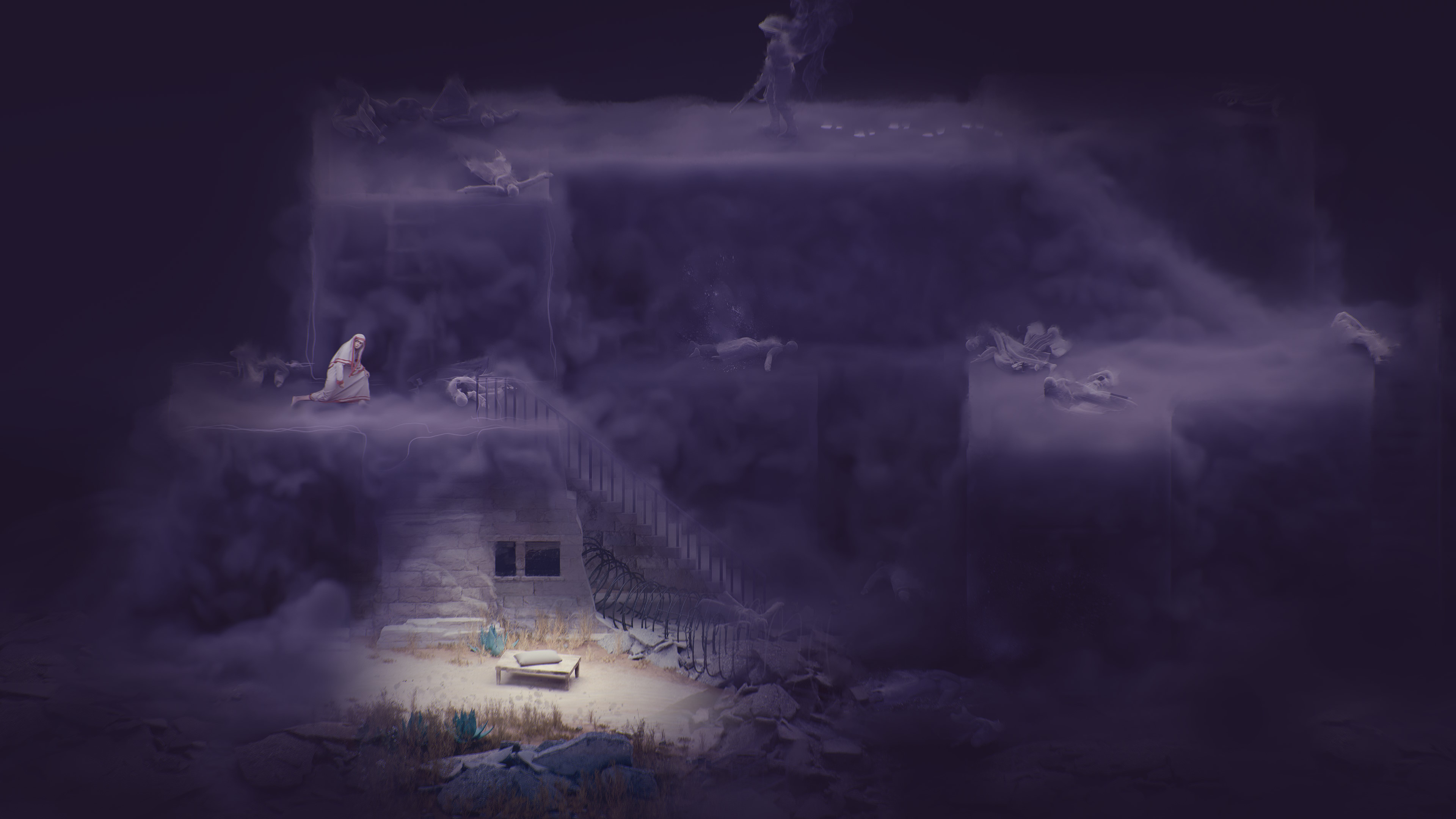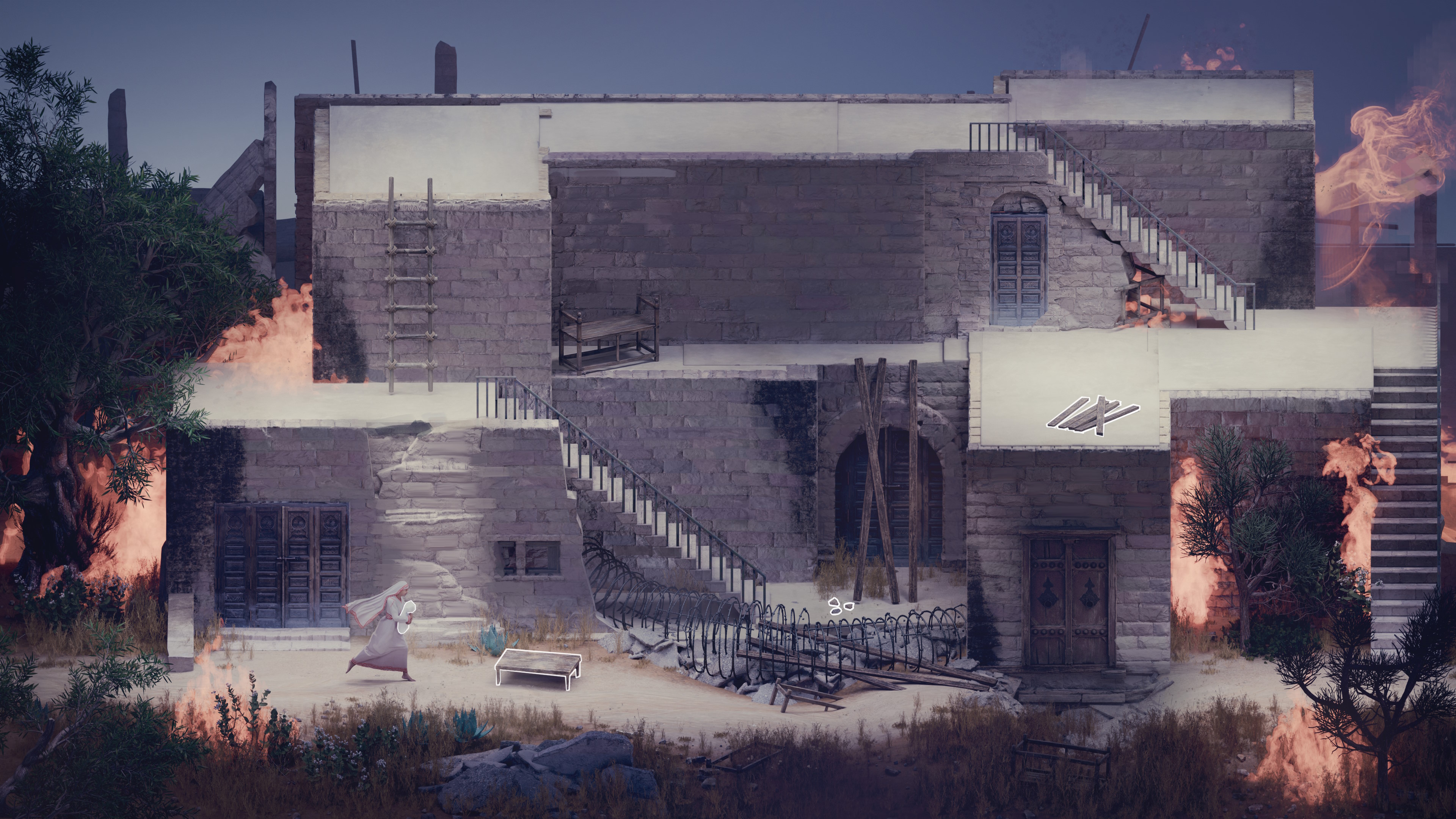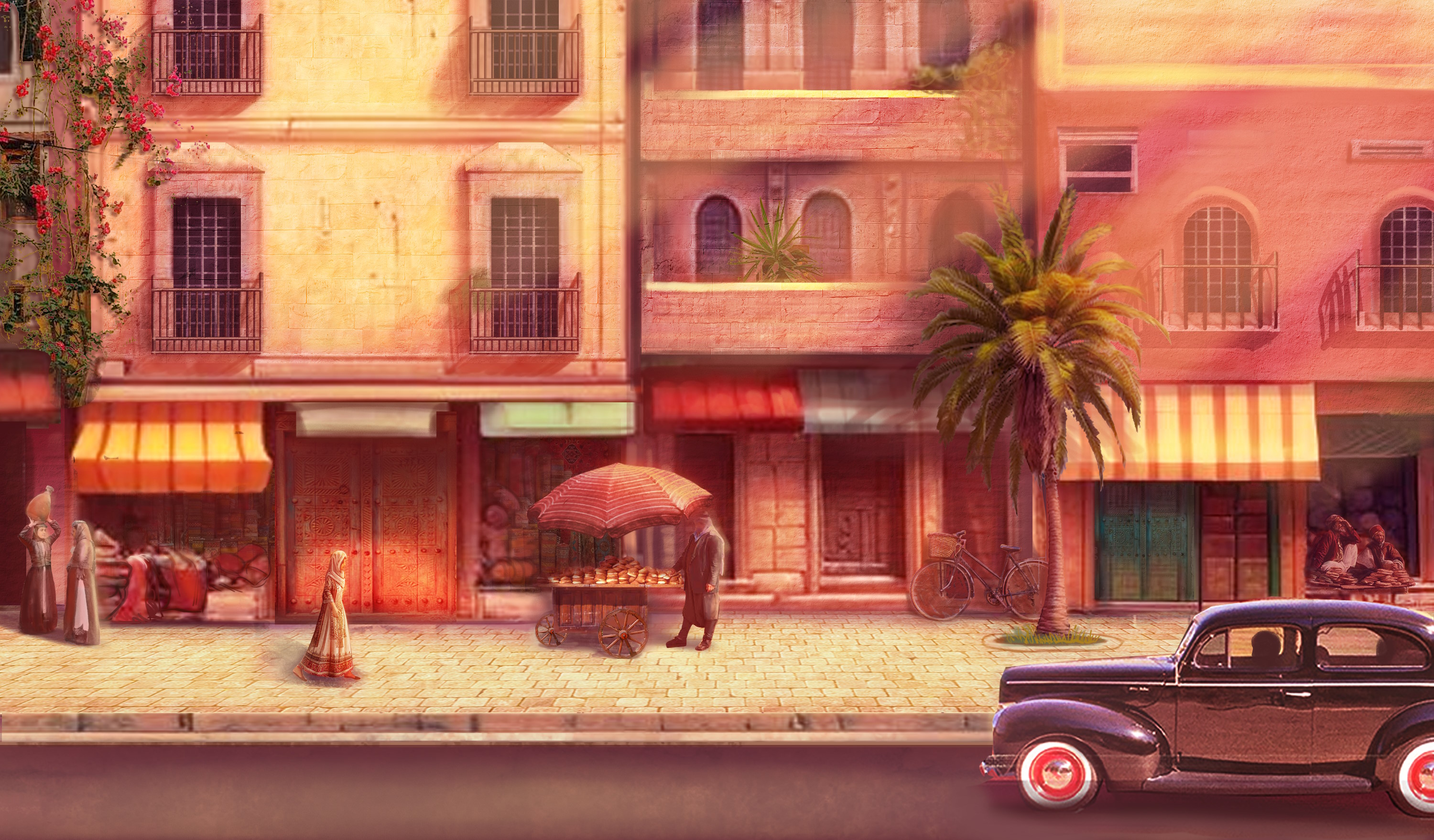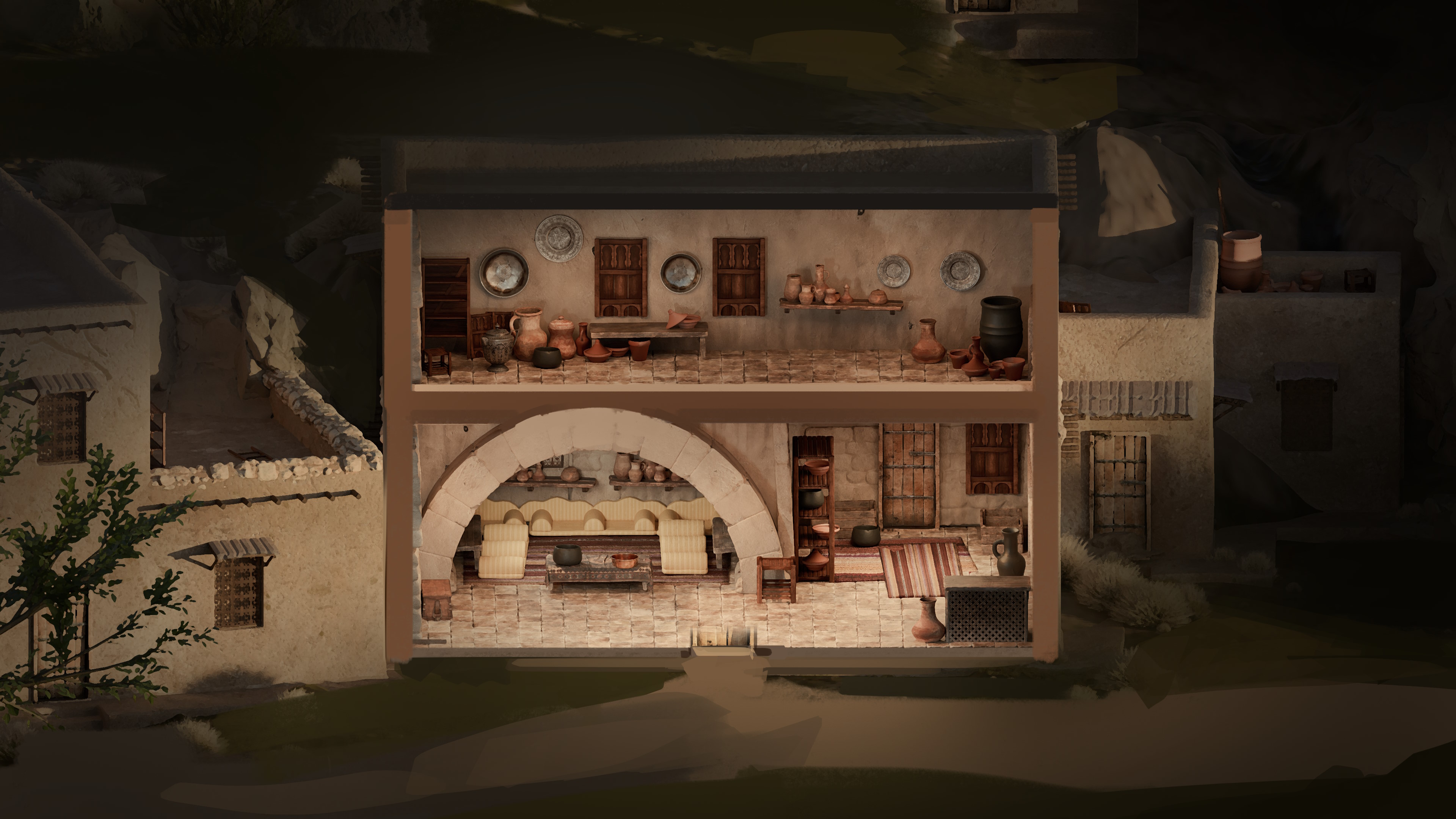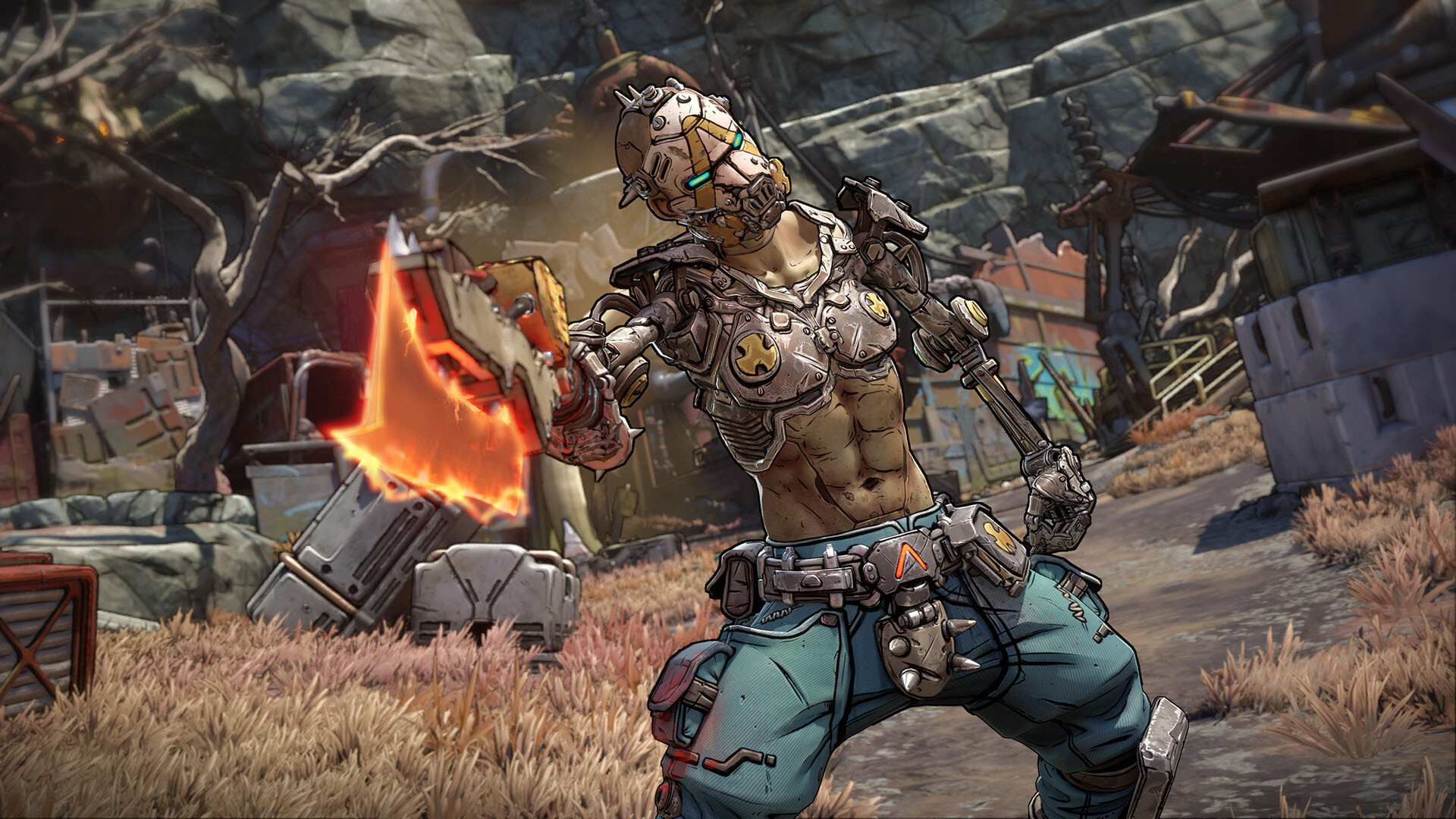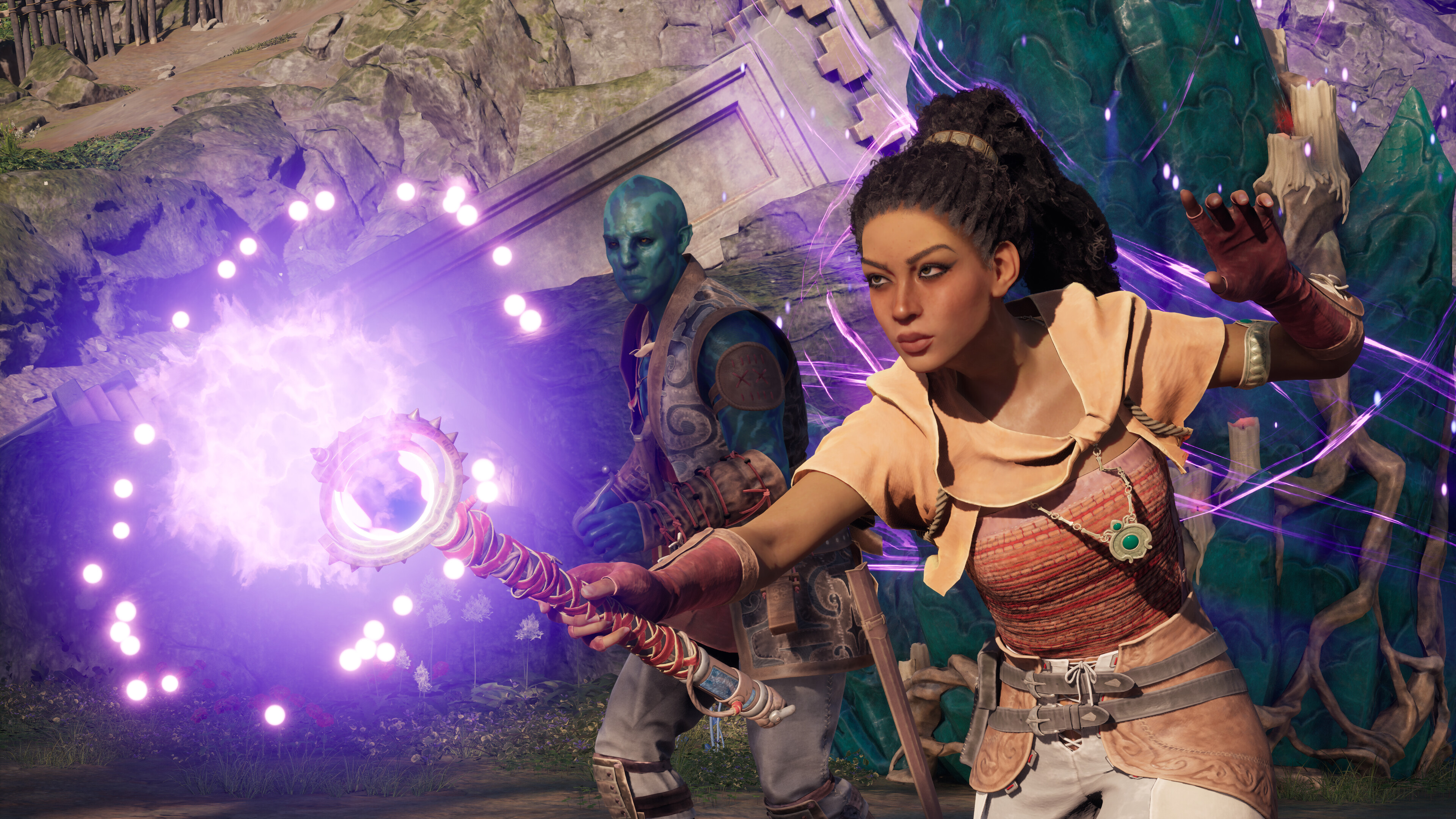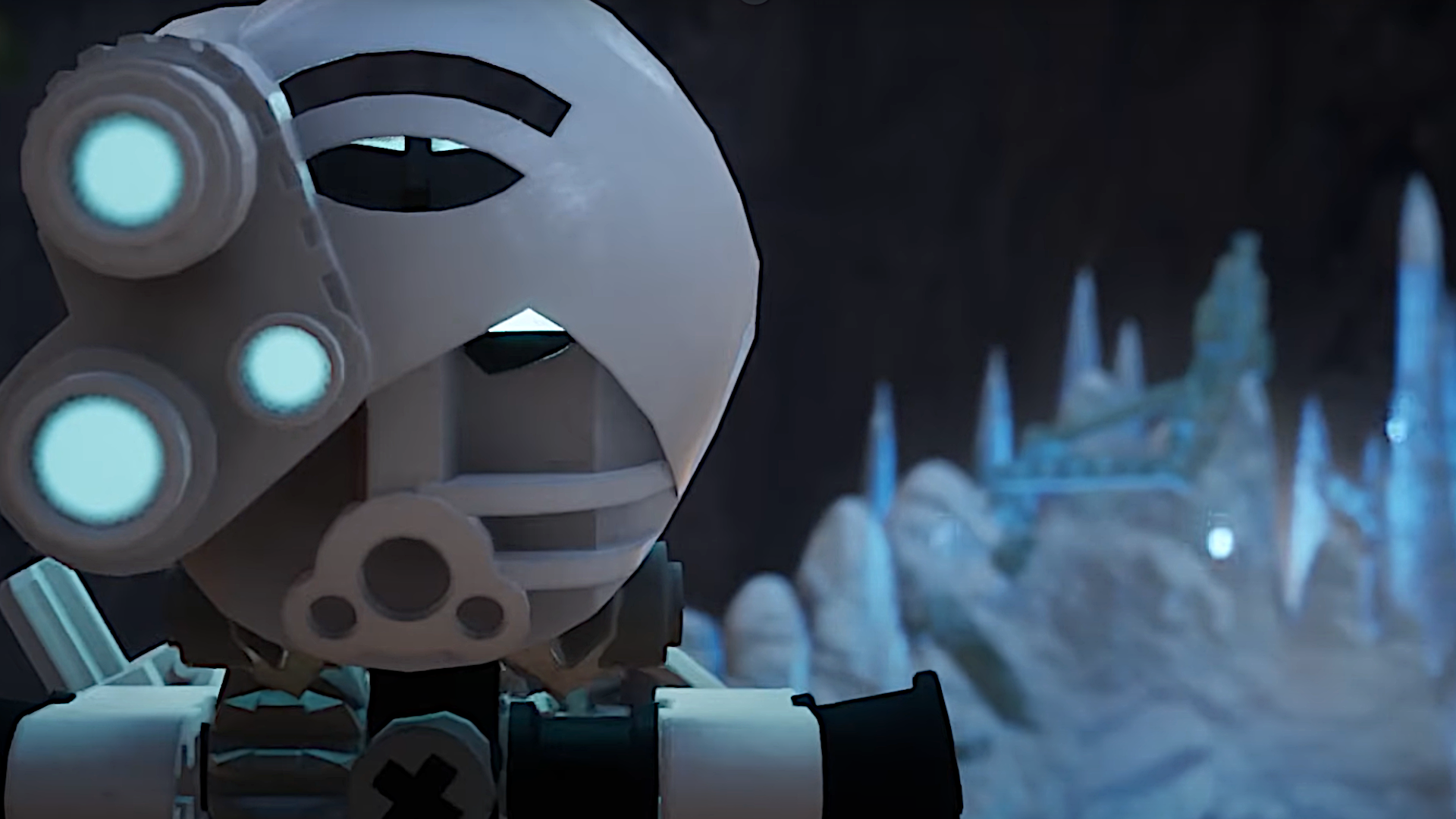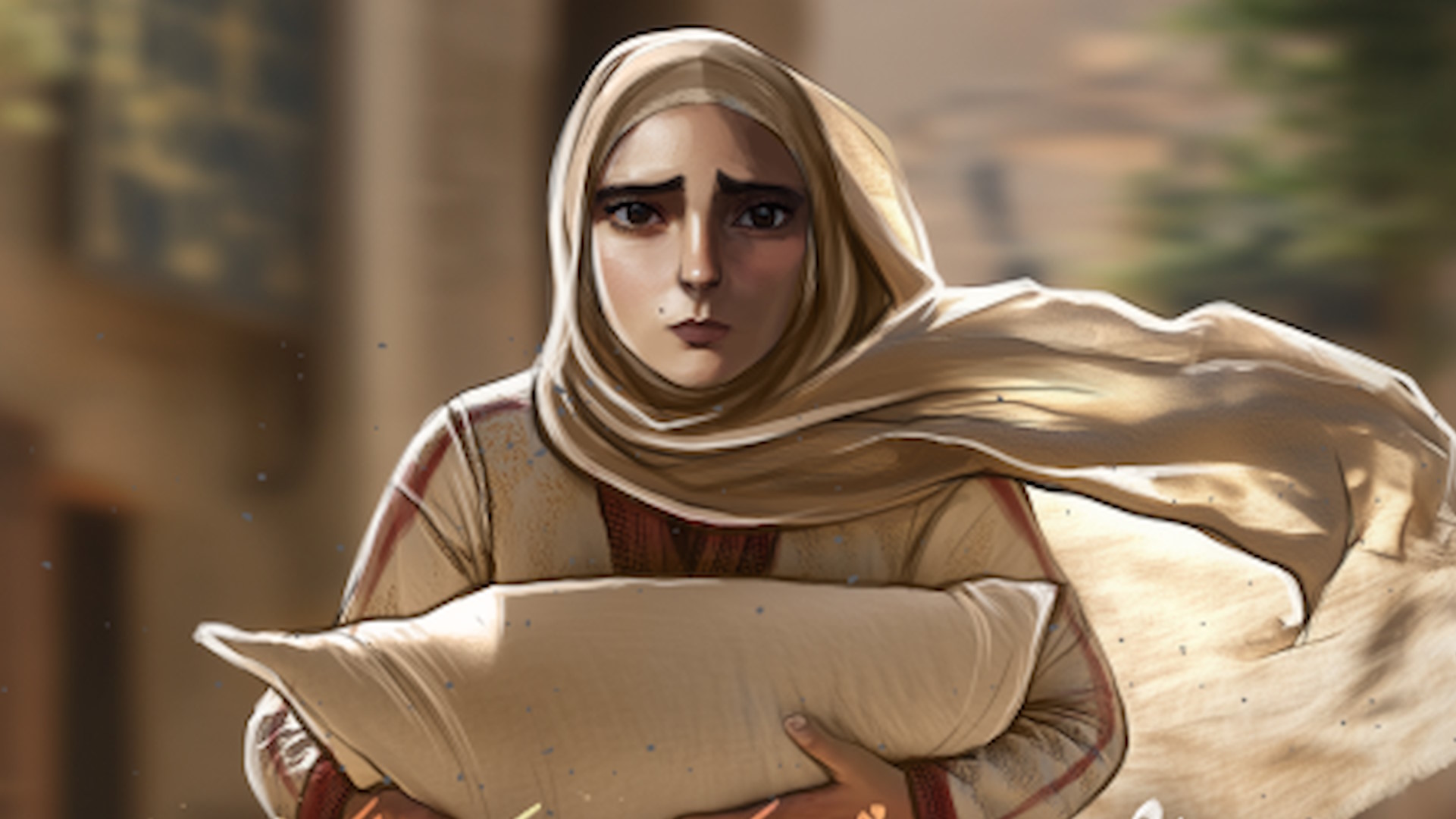
The new game from Lilya and the Shadows of War maker Rasheed Abueideh promises to relate "often untold stories of Palestinian history."
Rasheed Abueideh, a Palestinian game developer whose previous release Liyla and The Shadows of War followed a young girl trying to survive amidst the horrors of the 2014 Gaza War, has raised more than $200,000 to support a new project called Dreams on a Pillow, “a pseudo-3D stealth adventure” based on a Palestinian folk tale that takes place during the 1948 Nakba.
The United Nations describes the Nakba—”the catastrophe”—as “the mass displacement and dispossession of Palestinians during the 1948 Arab-Israeli war.”
“Before the Nakba, Palestine was a multi-ethnic and multi-cultural society,” reads the UN’s account. “However, the conflict between Arabs and Jews intensified in the 1930s with the increase of Jewish immigration, driven by persecution in Europe, and with the Zionist movement aiming to establish a Jewish state in Palestine.”
While the past 75 years have seen “countless” resolutions calling for the right of return for refugees, along with restitution and compensation, “the rights of the Palestinians continue to be denied,” the UN says. “Palestinians continue to be dispossessed and displaced by Israeli settlements, evictions, land confiscation and home demolitions.”
Lilya and the Shadows of War was acclaimed but Abueideh says he had trouble finding support for new projects, as publishers felt his subject matter was “too controversial.” He opened a nut roastery near his hometown of Nablus to support his family, but with Israel’s ongoing assault on Gaza forcing him to abandon it, he decided to return to games, relying on crowdfunding to enable the development of Dreams on a Pillow.
Dreams on a Pillow tells the tale of a young mother named Omm, whose husband is murdered by Israeli invaders. She flees from her home in a panic, carrying her newborn child—only to realize later that she has not taken her child, but a pillow. In most versions of the story, the LaunchGood crowdfunding campaign page says, she goes mad; in some, she is murdered, and in others she is able to flee her homeland, but cannot ever return.
In the game, players will experience “historical events and stories of the Nakba” through the eyes of Omm as she attempts to escape toward Lebanon. Carrying her pillow, she is able to walk but other actions are limited; when she puts it down, she can jump, crawl, climb ladders, throw rocks, and interact with objects, but its absence “triggers horrifying nightmares borne from the terrors she’s living through.”
“The swirling terrors reveal dangers of the mind, and shroud the dangers of the real world,” the crowdfunding page says. “Unsure of what is real and what is not, Omm has to ensure she completes her objectives and makes it back to Pillow, before her mind is lost to her guilt and trauma.
“Throughout the game, Omm, Pillow, and the player will experience often untold stories of Palestinian history. As Omm travels from the massacre of al-Tantura to the concentration camps of Atlit, she will later encounter the campaign of terror that led to the fall of Haifa, the bioweapon poisoning of Acre, and the Zionist attacks on refugees towards the Lebanese border.”
In an AMA on Reddit, Abueideh said he decided to use this particular story as the central concept for Dreams on a Pillow because “because it mirrors the emotional depth of the Nakba and reflects the persistent desire to return to one’s homeland.”
“The Nakba is not just about the physical displacement, but also about the dreams and memories of home that persist despite the passage of time,” Abueideh wrote. “This folk tale beautifully captures those emotions, and we felt it would provide a powerful framework for telling a story of resilience, cultural identity, and the struggle for justice.”
The Dreams on a Pillow crowdfunding campaign runs until January 13 and has already raised more than $214,000, surpassing its goal of $194,800. That amount will enable development to move into full production, with “a few core levels of the game created, and the entire game plotted out, scheduled, and prototyped.” Additional fundraising efforts to complete the game will be made “with a far more advanced version of the game in hand,” which Abueideh said makes it “a much more viable prospect.”
The Palestinian Ministry of Health (via Al Jazeera) says more than 46,000 people have been killed in Gaza as of January 7, including more than 17,000 children, since Israel began its assault on the territory in October 2023 in retaliation against a Hamas attack on Israel that killed more than 1,100. A recent statistical analysis published in The Lancet (via Reuters) says the number of deaths is likely dramatically underreported as “the escalation of Israeli military ground operations and attacks on health-care facilities severely disrupted the latter’s ability to record deaths electronically,” and estimates the actual number of dead could be as much as 41% higher than reported.


